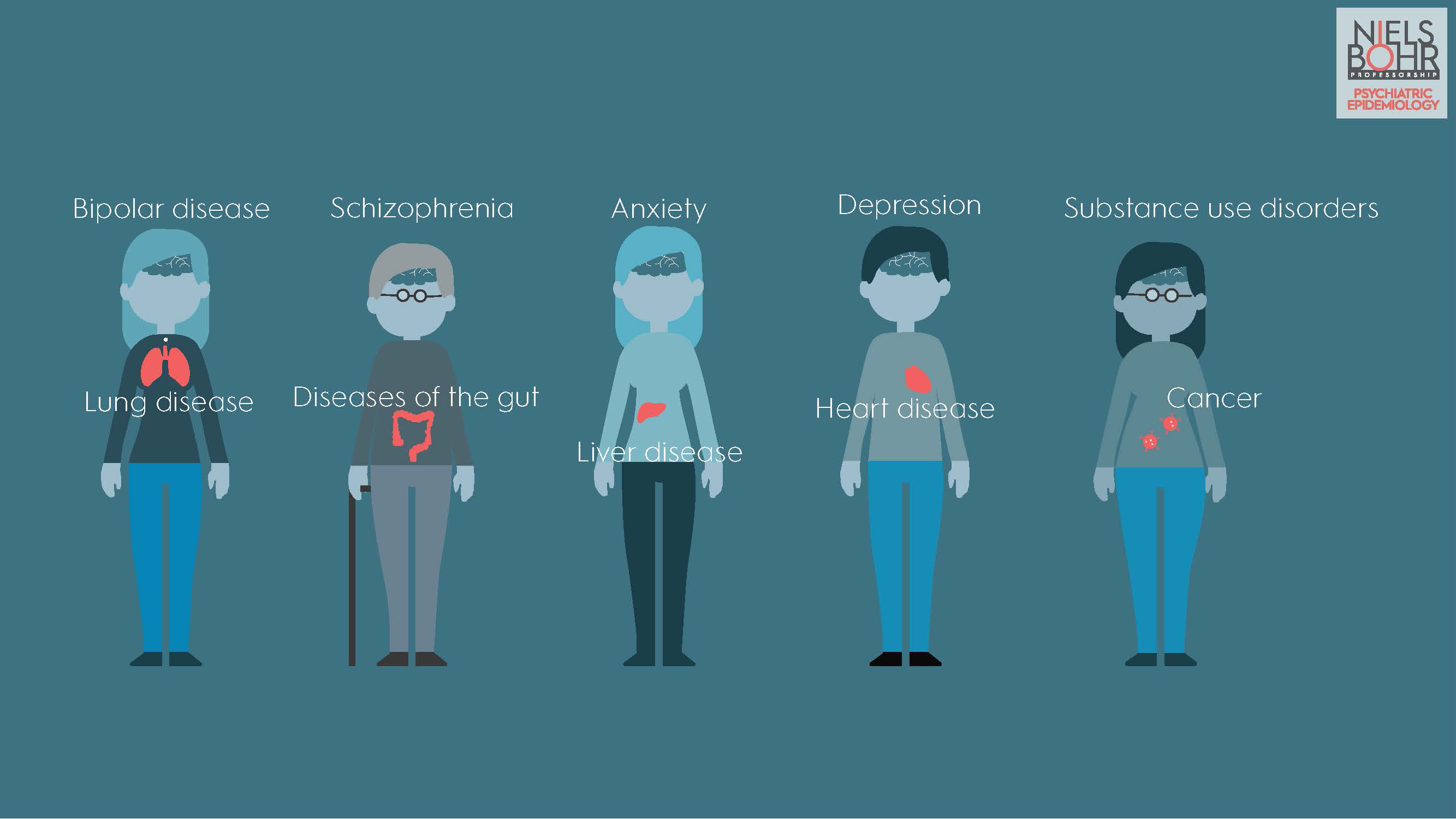News release
From:
Researchers now have the ability to map the risks of general medical conditions such as heart and lung diseases, diabetes and cancer for people with mental disorders.
A University of Queensland study has revealed that people with mental disorders are many times more likely to develop other health conditions, highlighting the need to provide them with better medical care.
Professor John McGrath, from UQ’s Queensland Brain Institute and Denmark’s Aarhus University, led an international team of researchers aiming to draw more attention to the fatal consequences of mental disorders, beyond suicide.
“We found that women with anxiety disorders have a 50 per cent increased risk of developing a heart condition or stroke — over 15 years, one in three women with anxiety disorders will develop these medical disorders,” Professor McGrath said.
“We also looked at men with substance use disorders such as alcohol-related disorders and found they have a 400 per cent increased risk of gut or liver disorders, while over 15 years, one in five of them will develop gut or liver conditions.”
The researchers have developed a website where relative and absolute risks of medical conditions can be explored, depending on sex, types of mental disorder, age of mental disorder diagnosis and time since mental disorder diagnosis.
Professor McGrath said the work was prompted by a previous study that identified a higher mortality rate for people with mental disorders, partly attributed to suicide, but mostly from general medical conditions.
“We need to provide better medical care to people with mental disorders because if we can treat these medical conditions early, we should be able to reduce the mortality gap,” Professor McGrath said.
“The best way to reduce the premature mortality is for GPs, mental health clinicians and people with mental disorders to work more closely together in order to monitor the general health of people with mental disorders.
“For those of us with mental conditions, we need to take especially good care of our physical health; watch our weight, exercise, and when we see our GP, ask for checks of our general health, such as our blood pressure and lipid levels, not just the mental disorder.”
The research is published in the New England Journal of Medicine, and studied 10 broad types of mental disorder and nine broad categories of medical conditions in 5.9 million individuals born in Denmark between 1900 and 2015.
Expert Reaction
These comments have been collated by the Science Media Centre to provide a variety of expert perspectives on this issue. Feel free to use these quotes in your stories. Views expressed are the personal opinions of the experts named. They do not represent the views of the SMC or any other organisation unless specifically stated.
Dr Grant Blashki is Lead Clinical Adviser for Beyond Blue and Associate Professor at the Nossal Institute for Global Health at The University of Melbourne
This credible study based on a substantial study population registry confirms the strong link between mental health and subsequent physical illness.
The standout finding of a strong association between mood disorders and circulatory conditions only adds to calls for health systems around the world to manage the whole patient and their chronic mental or physical conditions together
As a GP, what I really like about this study is that it’s a reminder that people with mood disorders really need to also look after their cardiovascular health such as reducing risk factors like smoking, obesity, diabetes, and getting regular exercise.



 Australia; NSW; VIC; QLD
Australia; NSW; VIC; QLD



